Conference
Recognizing and working with inductive/deductive communication styles – Nandini Bedi
Have you been in a situation where you asked your client or business partner or supplier a closed question for which you expected a ‘yes’ or a ‘no’, but what you got in reply was a story? Many more words than you had counted on, and they weren’t answering your question. You could have felt like the speaker was taking you for a ride, or maybe you were confused and didn’t quite know what you should do or say to take the exchange to a fruitful end. In this presentation, I will introduce you to two different styles of communication and show how these are embedded in culture. I will also give you tips on how to recognize these styles and how to work with the one most unfamiliar to you.
Click here to sign up for this event or to view a complete programme of all presentations.
About the presenter
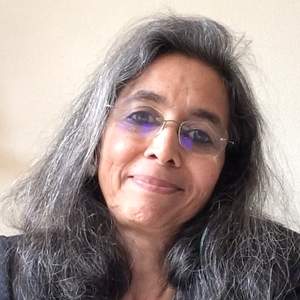
Nandini Bedi teaches English, copyedits, gives intercultural trainings and posts on her blog taal-tale.com. Via her trainings, she builds a bridge between the Netherlands and India. She does this with reverence and humour. She has settled in Oegstgeest with her partner, flown-out-of-the-nest-but-visiting twin boys and live-in cat, Sher Khan. More about her is available on www.nandinibedi.com.
How to increase your visibility and market your services – Claire Bacon
Some language professionals find it difficult to market their services and get credit for their work. They may also wonder how they can attract the clients they really want to work with. In this talk, I will describe how I increased my visibility within the editing community to get more client referrals and networking opportunities. I will also describe how I used a content marketing approach (through regular blogging) to target my ideal clients and educate them on what language editing is and why it is needed. My goal is to help you increase awareness of the services you offer and to help you convince potential clients that you are the best person for the job.
Click here to sign up for this event or to view a complete programme of all presentations.
About the presenter
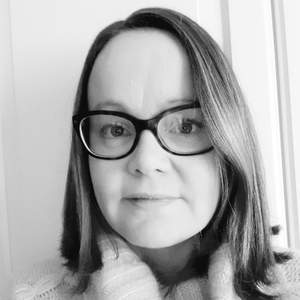
Dr Claire Bacon obtained her PhD in neuroscience from the University of York in 2006, after which she moved to Heidelberg, Germany to work as a research scientist in the department of Human Genetics. Working in a lab with multilingual scientists, she quickly realised that many scientists struggle to publish their work in English and became the official ‘language editor’ of the lab. In 2014, Claire decided to leave academia and set up her own language business. After taking several courses in copy editing and medical editing to develop her skills, she now runs a successful editing business, working mainly for multilingual scientists whose native language is not English. She publishes a monthly blog to help her clients with their research writing and teaches courses on scientific writing and academic publishing at the University of Twente.
Spanish wine and translation: What could they possibly have in common? – Rebecca Reddin
Upon diving deeper into Spanish wine, what every biologist and humanist knows became crystal-clear to one linguist: we share a lot more than we think. Rebecca reflects on the very relatable lessons the Spanish wine industry has to offer translators and editors everywhere about process, product, identity, value and purpose. This is a chance not only to peek behind the curtain of a prestigious, delectable industry, but to start imagining: what could your clients teach you?
Click here to sign up for this event or to view a complete programme of all presentations.
About the presenter
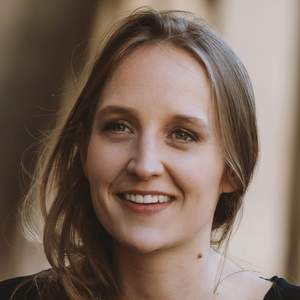
Rebecca Reddin has been a freelance translator, editor and subtitler working from Spanish into English since 2017. She believes the world is full of rich, eloquent, enlightening ideas and projects, and not just in the English-speaking sphere. As she specializes in the complex world of wine and scales the learning curve of business, Rebecca aims to promote her adopted home of La Rioja, Spain. She also wants reflect the ingenuity and insight of the Spanish voices around her in words that make the United-States-ian world stop and listen.
The freedom of freelancing: deciding on a digital nomad journey – Maaike Leenders
Ever dreamt of just leaving it all behind, packing a bag and simply working wherever you want to? I did. And I did. After working in-house and on the road, my three years as a freelancer have taught me there are pros and cons to both. Based on my personal experience, I will talk about what to consider when you are thinking of trying a digital nomad lifestyle. Is it possible to travel and build a business at the same time? How much freedom does it really offer? And do you actually need to upend your whole life to do it?
Click here to sign up for this event or to view a complete programme of all presentations.
About the presenter
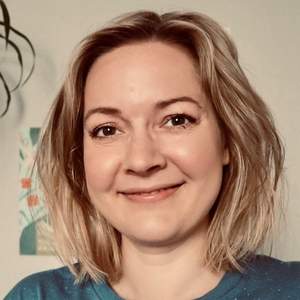
Maaike Leenders is a translator and project manager with a travel bug that can’t be cured. After working in-house for nearly five years, she exchanged the office for the open road and has taken every opportunity to digital nomad her way through freelance life ever since.
CPD: Changing professional development – with Lloyd Bingham
As language professionals, we place immense value on continuing professional development (CPD) to evolve our knowledge and skills so we can best serve our clients. But as the world changes, so too do our clients’ requirements and the profession. It’s our job to keep up with these changes and adapt to them.
The number of in-house translator positions is falling, while enrolment on translation degree programmes is up. Will this produce a generation of new translators entering the market without honing their skills first?
The world is switching to hybrid working and we are doing more and more CPD online. Will in-person training become a thing of past?
I will discuss the trends I have observed in the training undertaken by translators in recent years and draw conclusions on what the landscape of education and professional development for linguists will look like in the near future.
Click here to sign up for this event or to view a complete programme of all presentations.
About the presenter
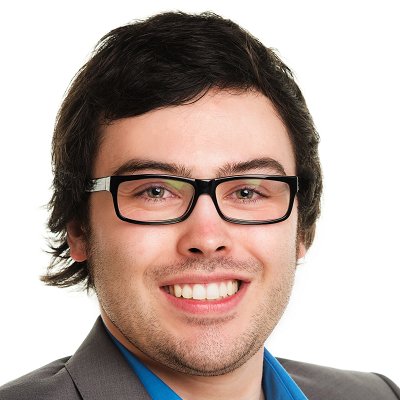
Lloyd Bingham MITI runs Capital Translations in Cardiff, Wales. He works from Dutch, German, French and Spanish into English, specialising in business, technology and education. Lloyd is a member of SENSE and ITI, a committee member of ITI Cymru Wales and a tutor on ITI’s Starting Up as a Freelance Translator course.
Working as collaborative translators in arts and culture – Danielle Carter
At the beginning of 2021, I started working together with Julia van Duijvenvoorde.
We offer a translation and copy editing package service for cultural organizations, publishers, exhibition designers, and beyond. What are the benefits of working together as a language duo? How does this work in practice? And why is this particularly beneficial when working in a niche? It’s a joy to share our passions, culture and language, and a boon to work together.
Click here to sign up for this event or to view a complete programme of all presentations.
About the presenter
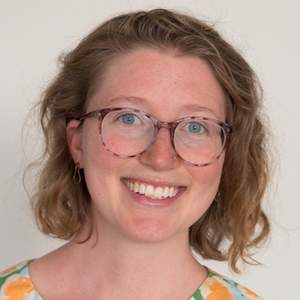
Danielle Carter is an academic copy editor and museum language services specialist. After working for several years in the arts and cultural sector, Danielle transitioned in the language industry, where she has found a niche copy editing academic books ranging from film studies to architecture to fashion, writing and editing coffee table books about arts and media, and revising translations and copy editing for cultural organizations.
2021 Professional Development Days (PDD)
Day 1: Saturday 18 September 2021, from 10:00 to 15:00
Day 2: Saturday 25 September 2021, from 13:00 to 17:15
With all-day networking available in the online networking platform Wonder.
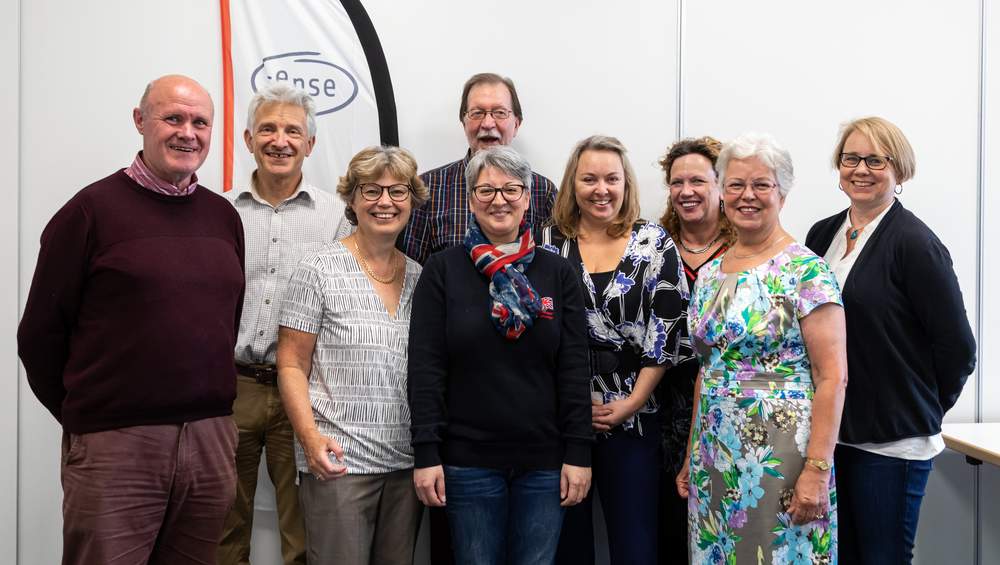
Come join us for our Professional Development Days, the biennial event in which SENSE members learn from (and with) other members. This year's programme is all about horizontal knowledge-sharing and learning from your peers throughout your career.
Topics include digital nomadism, the linguistics of wine, branding to money management, balancing multiple niches, collaborative translation, intercultural communication, the SENSE mentoring programme, and battling imposter’s syndrome.
We open with a plenary session called "Peer-to-peer knowledge-sharing" on day 1 and close with a plenary session called "CPD: Changing professional development" on day 2. Choose up to nine out of 18 possible elective sessions that match your interests. And if none of the sessions interest you at any time, head on over a virtual watercooler to network with other members while you wait.
There are three panel discussions:
- Intercultural business communication (Day 1, morning)
- The SENSE mentoring programme (Day 1, afternoon)
- Strategies to combat imposter's syndrome (Day 2, afternoon)
Six electives are available on both days:
- How the language industry has changed over the past 20 (or so) years
- The freedom of freelancing – deciding on a digital nomad journey
- Spanish wine and translation: what could they possibly have in common?
- How to be a specialised generalist
- Money management: does your "boss" treat you well?
- What gives you energy? And how do you earn a living doing that?
And nine other electives to choose from:
- Recognising and working with inductive/deductive communication styles
- How to increase your visibility and market your services
- Working as collaborative translators in arts and culture
- Maintaining language pairs
- Personal branding: Lessons learnt through trial and (t)error
- An ergonomic workspace: keep fit while you work
- An editing slam
- Keep track to keep up: organizing your workflow
- (and a session yet to be confirmed by Christy de Back)
Of course, we haven’t forgotten about the social aspect. An unmoderated Wonder room will be available throughout the two days to allow for networking and mingling with old colleagues and new faces on the SENSE scene. At the end of each day, we’ll have a moderated networking session.
Sign up
Tickets cost €25 for SENSE members and €40 for non-members. The ticket grants access to both days.
IMPORTANT: If you have not yet registered for this event, you can still register for Day 2 of the event. Please visit the registration page for Day 2 to register for the second day of this event. If you have already registered for this event, your ticket is valid for both days. Members, remember to log in!
Are you not a SENSE member? Consider joining! You can find more information about joining SENSE here.
Click here for the programme.
Click here to register.
Terminology extraction and management
Angelika Zerfass
Week 30, 29 July 2021, 15:00–17:00
During this webinar, Angelika will be posing and providing answers to the following questions:
• What is a term (the view of the terminologist versus real life)?
• How are term bases structured, i.e. what kind of information can you save with your terms?
• How do you go about collecting terminology in your translation tool?
• Importing/Exporting term lists (how to structure the import list for easy import).
• How do translation tools recognize terms from the term base in the documents (settings)?
• How do translation tools check whether (forbidden) terms have been used in the translation?
• Extracting terms from text (with and without a term extraction tool).
Click here to register
About the presenter
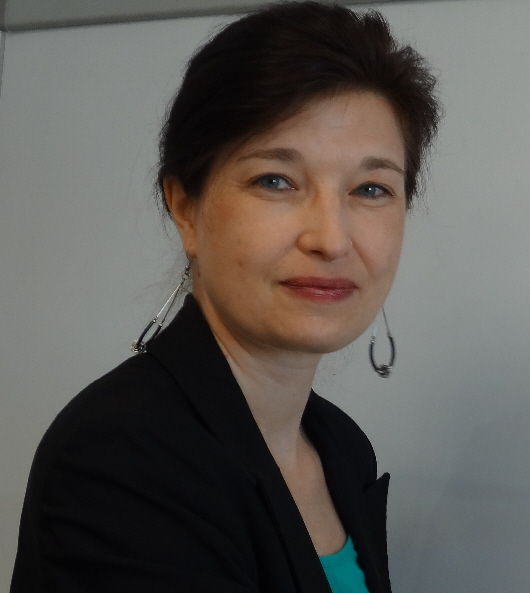
After her studies at the University of Bonn, Germany (translation degree in Chinese, Japanese and Computational Linguistics), Angelika Zerfass worked for the Japanese Embassy in Bonn and then for Trados (1997-2000) as a training and support specialist in Japan, Ireland and the US. In 2000, Angelika started her own business for training, consultancy and technical support. Since then, she has been working as an independent consultant and trainer for translation tools and technologies, located in Germany. She is also a frequent speaker at conferences all over the world.
The plain truth: applying Plain Language to creating accessible, user-friendly texts
John Linnegar
Week 31, 7 August 2021, 10:00–13:00
PLAIN (the international association of plain-language professionals) has drafted this definition:
‘A written communication is in plain language if its wording, structure, and design are so clear that the intended readers can easily find what they need, understand it, and use it.”
This requires authors to make informed judgments about whether the text (”wording”) is clear enough. It also means using good organisation (“structure”) and layout (“design”) to help them navigate.’
During this webinar, the aim will be to help practitioners learn how to harness Plain Language (or plain English) principles to improve the flow, accessibility and easy comprehension of authors’ texts. The aim is to introduce participants to a suite of handy Plain Language techniques with which to turn verbose, high-register texts into those that the identified readers will find accessible and understandable at first reading.
‘The message is important, not the fancy language wrapped around it.’
(George Orwell)
It’s astonishing how many writers feel they need to ‘dress up’ their writing to the extent that they lose their natural (aka plain) voice completely! Their reasons are no doubt many: from wanting to impress to needing to sound important or authoritative – and sometimes even because their boss or professor ‘writes like that, so it must be good’! But in this day and age we should rather be ‘dressing down’ writing to make it more accessible and flow better. Where writers themselves are incapable of doing so, the task usually falls to us wordsmiths to dress (not dumb!) writing down.
We need to make authors’ words clear and straightforward, using only as many words as are necessary. Plain Language helps us to do so by dispensing with the ‘fancy language wrapped around [their words]’: obscurity, inflated vocabulary and convoluted sentence constructions. Applying Plain Language principles systematically, our aim is to render the authors’ messages readily understood at first reading.
By the end of this online workshop you will be able, with confidence, to:
● convert long, complex sentences into shorter compound or simple ones;
● replace, where possible, passive voice (O-V-S) constructions with active ones (S-V-O);
● remove embedded clauses from complex sentences;
● replace ‘difficult’ polysyllabic words and jargon with more everyday, accessible synonyms (eg ‘remuneration’ with ‘pay’ or ‘wage’);
● make impenetrable noun strings accessible by inserting prepositions and articles into them;
● supplant nounisms (nominalisations) with healthier vigorous verb equivalents (eg ‘invitation’ with ‘invite’);
● dispense with archaisms such as ‘aforesaid’, ‘herein’, ‘thereby’, ‘whereafter’;
● find ways to introduce useful visual elements (eg lists). Fundamentally, we wordsmiths will be asking – and answering – the questions ‘Who is the audience?’ and ‘What are their needs?’ In so doing, we’ll be using the reader-centric approach authors should have adopted.
Click here to register
About the presenter
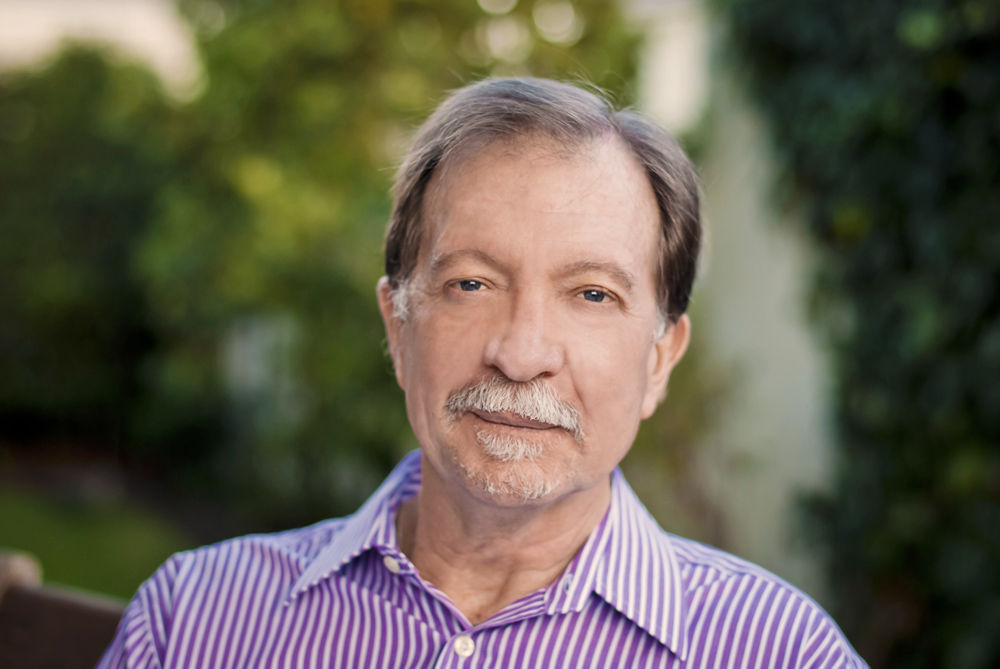
John Linnegar began his career as a teacher of English, History and Mathematics. His passion for working with words was ignited by his high school teachers of English, Latin and German. Those strong grammatical foundations combined with a love of his mother tongue led him towards authorship and, as a direct result, towards improving authors’ texts for publication. He has been an avid ‘improver of authors’ words’ for four decades now, and remains dedicated to making their texts read as clearly as possible (and in the process saving a reputation or two!).
John is author of several texts dealing with matters grammatical and stylistic, including contributions to the Oxford English grammar: The advanced guide (OUP, 2015) and, most recently, with Ken McGillivray, grammar, punctuation and all that jazz . . . (MLA Publishers, 2019). He currently offers a personalised ‘online’ Grammar for Editors course aimed at those who need to brush up their English grammar and an online training course on Plain Language.
More...
Excel tips for self-employed language professionals
Maya Berger
Week 28, 13 July 2021, 14:00–17:00
When a client approaches you about a new editing job, wouldn’t it be great if you had a tool to help you:
● quote a fair rate and accurate timeframe for the project;
● track whether you get paid on time;
● compare your estimated hourly rate and editing speed with your actual rate and speed; and
● analyse how valuable this client is for your business?
Wouldn’t it be greater if this tool was already on your computer, included in your Microsoft Office suite? And wouldn’t it be even greater if this tool didn’t intimidate and baffle you?
Whether you’re already spreadsheet savvy or you’ve never used Excel before, this workshop will show you how you can harness Excel’s functionality to manage your freelance editorial business confidently and professionally.
In this workshop, I will show you how to manage your income, expenses, and project data in Excel and take the guesswork out of running your business. It will cover:
● An introduction to Excel basics and terminology.
● Using Excel to track project income, editing speed, average rates and more.
● Your business data at a glance, with summaries and charts.
● Excel troubleshooting tips.
Click here to register
About the presenter
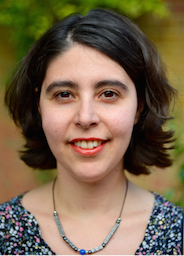
Maya Berger launched The Editor’s Affairs (TEA) in May 2020 with the aim of helping fellow freelance editors keep their business affairs in order. She is a CIEP Advanced Professional Member, and she gave seminars at the 2020 CIEP annual conference and the 2018 and 2019 SfEP annual conferences. She has also appeared as a guest on The Editing Podcast. Maya specialises in copy-editing and proofreading speculative fiction, erotica and academic texts in the humanities and social sciences.
After spending 13 years in the UK, Maya returned to her native Canada in October 2017 with her cat and editorial assistant, Idris. She currently lives and works in Toronto.
maya.berger@gmail.com | www.whatimeantosay.com | LinkedIn: https://www.linkedin.com/in/mayaberger/ | Twitter: @MayaBerger
Setting up Word styles and table of contents (ToC)
Monica Bosman
Week 26, 28 June 2021, 14:00–17:30
During this webinar, participants will be introduced to Word styles as a useful tool for saving formatting time and ensuring formatting consistency. They will learn how to set up and apply a new paragraph or heading style and how to modify it later, and how to insert an automatic table of contents once heading styles have been applied.
The main focus of this webinar will be on the most prominent aspects of setting up and applying a style, such as using the Styles pane and the Modify dialogue. It will also be an opportunity to answer participants’ questions relating to Word styles.
Since heading styles are so useful for inserting a table of contents, Monica will also show participants how to insert one at an elementary level. However, the workshop will not deal with the complexities of tables of contents.
People who register for this workshop will receive pre-webinar exercises to complete in advance of 28 June. The exercises will guide them around the Word workspace as it relates to styles so that they will already know their way around when we start and can follow the demonstration more easily. It will also prepare them for a short poll to be taken at the start of the webinar.
The workshop will entail a practical demonstration and some participants may want to follow along on their own version of Word for PC. For this purpose, there will be a technical introduction to help them split their screens or toggle between Zoom and Word. Those who want to follow along in this way should please open the pre-webinar exercise in Word before they sign in to the meeting – it will be used as the demo document.
Click here to register
About the presenter
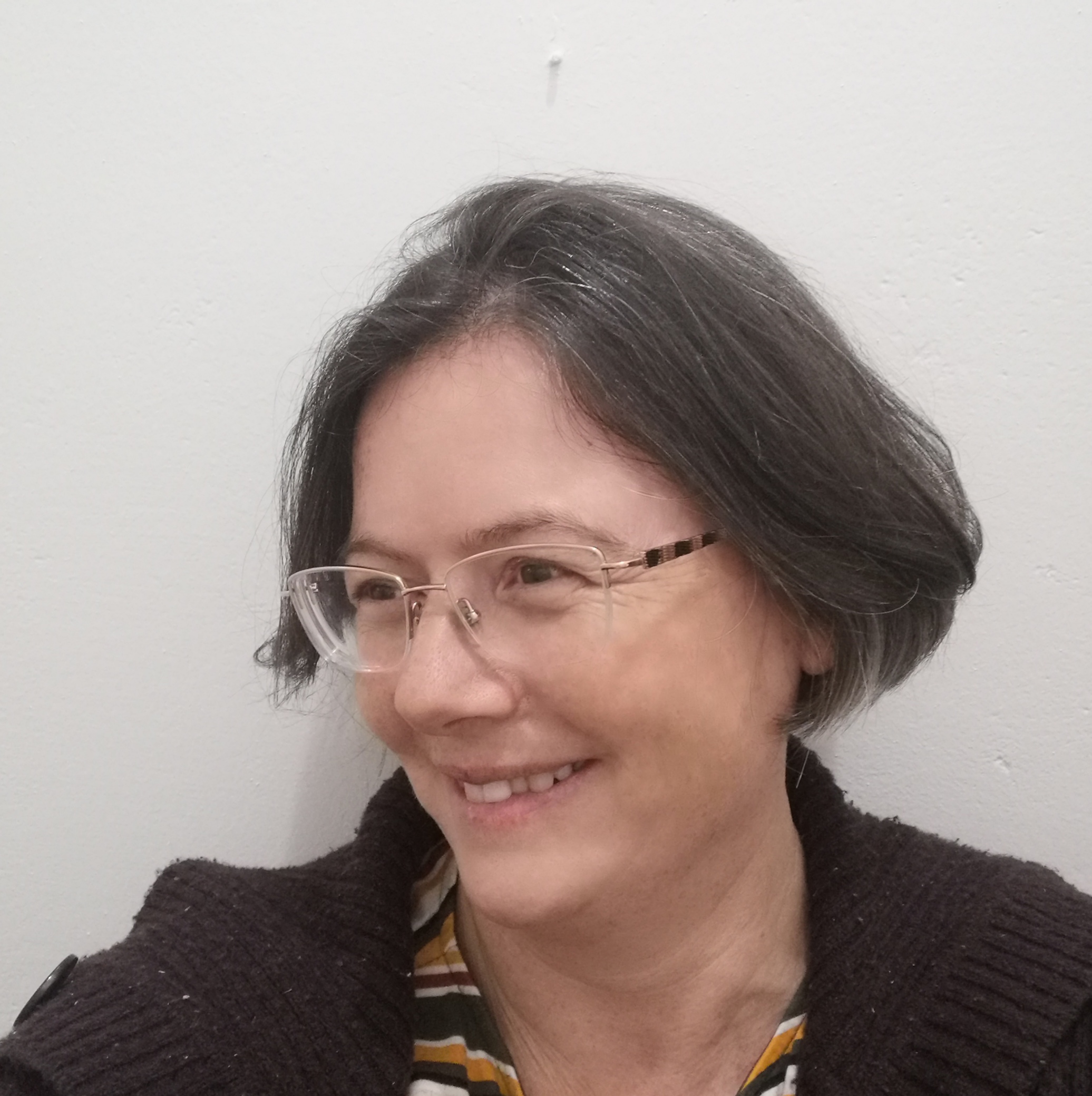
Monica Bosman studied languages, general linguistics and teaching at university. She began her working life as an English teacher and later became a linguistics lecturer at university level. In 2008, she ventured out on her own as a language practitioner, completing copy-editing and proofreading courses to prepare the way. Since then, she has been a member of the Professional Editors’ Guild.
Being interested in visual design, she also tries her hand at layout, typesetting and graphic design whenever the occasion arises. This is ultimately what led to her interest in mastering the Word Styles functionality, modification and application to document design and layout – and to using Styles as efficiently as possible.
Her other interests include gardening, herbal remedies and aromatherapy. Two fiery redheads and a feisty budgerigar share her space.
Macros by the tourist route
Paul Beverley
Week 27, Friday, 9 July 2021
Morning session: 11:00–13:00
Afternoon session: 13:45–15:00
During the past year, I’ve been working with a team of editors, with the aim of setting up a website to present the macros, and providing training materials to help people learn to use macros in editing.
The project is ongoing and the website isn’t yet available, but by working with editors/trainers who have only been using macros for a relatively short time, I have developed a get-you-started technique called “Macros by the tourist route” (MTR), that is, not too steep, so that the less technically minded editor can make it up the macro slope!
The training session will start with MTR in its two incarnations: PC and Mac. We will go on to give some pointers as to where to go next. Rome (and macro-enabled editing) wasn’t built in a day, but we can at least lay some firm foundations, and give you a blueprint for your future professional development.
Macros by the tourist route is a self-directed workshop (download it here for Windows or here for Mac), so if you were to have a go with it before the session then you’d get even more out of the day itself. (Compared to last year’s online workshop, this will start more slowly, but take you further along the same general direction. If you did last year’s training but are still not using macros regularly, then you should find this session helpful.)
Click here to register
About the presenter
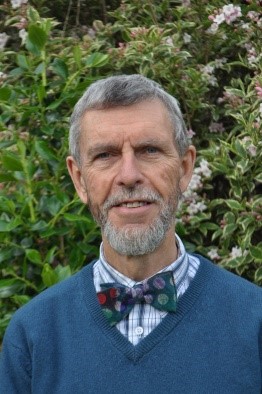
Paul Beverley has been creating macros for use by editors and proofreaders for over 15 years. The macros (more than 800 of them) are freely available via his website and are used in over 50 countries. In his ‘spare time’, he edits technical books on a professional basis because, despite having pension income, he enjoys editing far too much to stop altogether. He has also recorded over 150 videos, so that you can see the macros in action.
He lives in Norwich, UK, with his lovely wife, Sue, has two sons – one a programmer(!) and the other an international educational consultant – who have given him two lovely daughters-in-law and five adorable grandchildren. He considers himself well blessed indeed!
Search engine optimization (SEO) for translators
David Garcia Ruiz
Week 23, Thursday, 10 June 2021, 14:00–17:00
In the first part of the workshop, David will explain the mandatory things translators need to know about SEO. Then he will lead the participants through a variety of different activities where attendees will practise their skills to learn how to do keyword research, SEO translation and content optimisation, among other tasks. This webinar may well be of interest to non-translators who nevertheless want to learn more about taking SEO into consideration when creating text for the web environment.
Click here to register
About the presenter
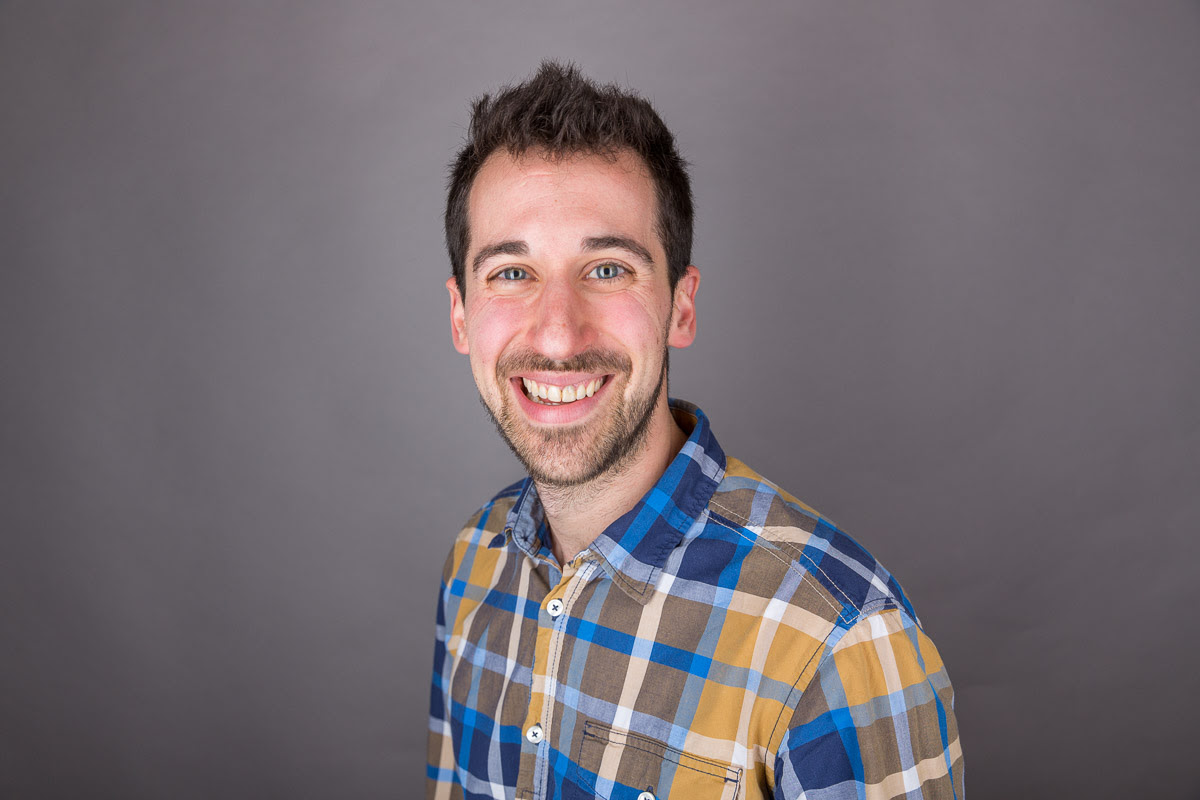
Born and raised in Spain and now resident in the UK, David Garcia Ruiz has provided multilingual SEO services since 2015. He has presented at several events for groups of professionals wanting to learn more about optimising their website content for global markets. He holds an MA in Translation from Swansea University and is a Qualified Member of the Institute of Translation & Interpreting (ITI), as well as a Member of the Chartered Institute of Linguists (CIOL).